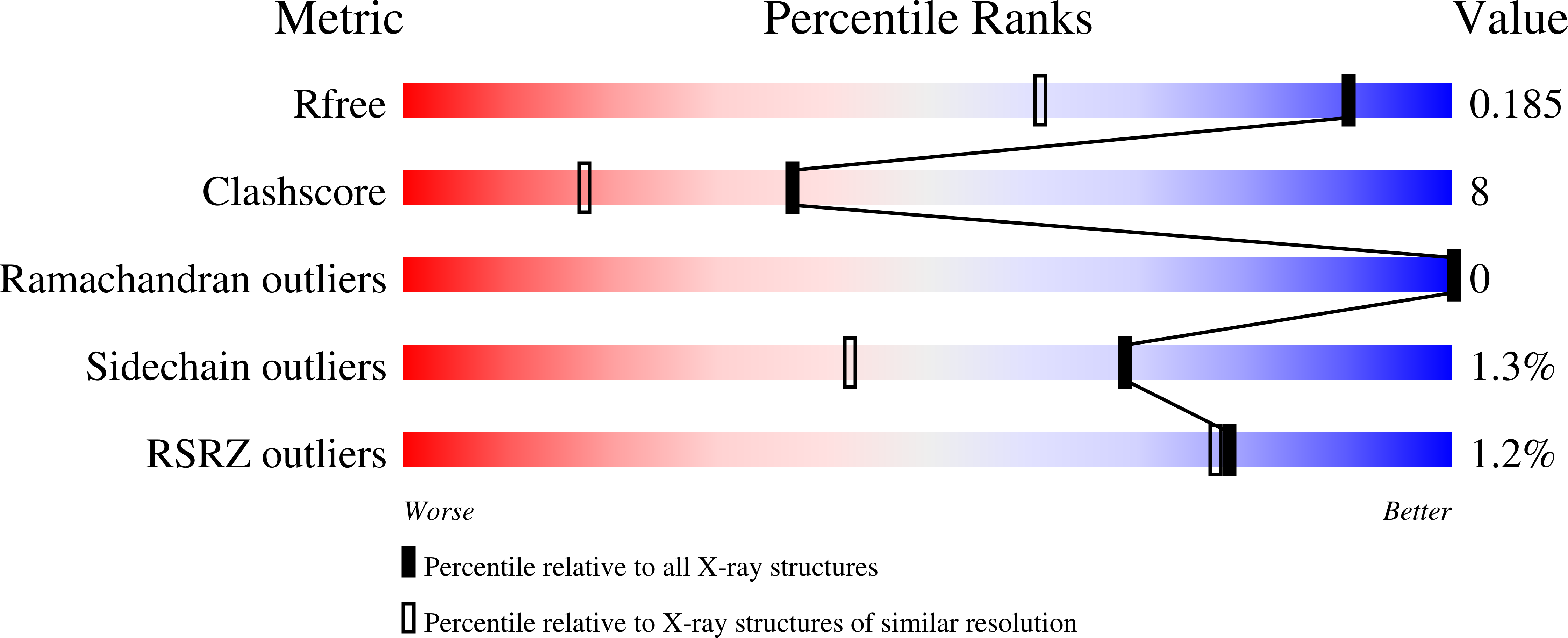General approach to reversing ketol-acid reductoisomerase cofactor dependence from NADPH to NADH.
Brinkmann-Chen, S., Flock, T., Cahn, J.K., Snow, C.D., Brustad, E.M., McIntosh, J.A., Meinhold, P., Zhang, L., Arnold, F.H.(2013) Proc Natl Acad Sci U S A 110: 10946-10951
- PubMed: 23776225
- DOI: https://doi.org/10.1073/pnas.1306073110
- Primary Citation of Related Structures:
4KQW, 4KQX - PubMed Abstract:
To date, efforts to switch the cofactor specificity of oxidoreductases from nicotinamide adenine dinucleotide phosphate (NADPH) to nicotinamide adenine dinucleotide (NADH) have been made on a case-by-case basis with varying degrees of success. Here we present a straightforward recipe for altering the cofactor specificity of a class of NADPH-dependent oxidoreductases, the ketol-acid reductoisomerases (KARIs). Combining previous results for an engineered NADH-dependent variant of Escherichia coli KARI with available KARI crystal structures and a comprehensive KARI-sequence alignment, we identified key cofactor specificity determinants and used this information to construct five KARIs with reversed cofactor preference. Additional directed evolution generated two enzymes having NADH-dependent catalytic efficiencies that are greater than the wild-type enzymes with NADPH. High-resolution structures of a wild-type/variant pair reveal the molecular basis of the cofactor switch.
Organizational Affiliation:
California Institute of Technology, Pasadena, CA 91125, USA.

















